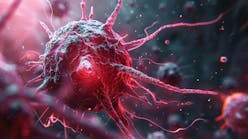As part of the new, national Cancer AI Alliance (CAIA), scientists from the Sidney Kimmel Comprehensive Cancer Center at Johns Hopkins and the Johns Hopkins Whiting School of Engineering will develop projects centered on using AI to enable precision cancer care, building better approaches to detect, intercept and treat cancers, considering each patient’s unique history and treatment path.
Currently, cancer researchers face two challenges to using AI modeling: accessing the computational resources to quickly analyze large volumes of data and remaining compliant with the regulatory and privacy requirements associated with sharing data from multiple cancer centers.
CAIA will serve an enabling role, providing the computing infrastructure to members of the alliance to process high volumes of cancer data generated during routine cancer care, such as electronic health records, pathology images, medical images and genome sequencing. This data, when paired with AI, could lead to novel insights about tumor biology, treatment resistance and identification of new therapeutic targets.
All of this will be achieved while maintaining data security, privacy and alignment with regulatory and ethical standards. Paired with strict governance, CAIA will use a federated AI learning framework in which each cancer center maintains its independent data, and AI models are sent to the data to produce results. Those results are then aggregated across participating members to uncover insights, all without sharing or exposing any of the raw data.
The Fred Hutch Cancer Center, which spearheaded the formation and initial funding of CAIA, will serve as the alliance’s coordinating center. In addition to Johns Hopkins, participating institutions include Dana-Farber Cancer Institute and Memorial Sloan Kettering Cancer Center.





